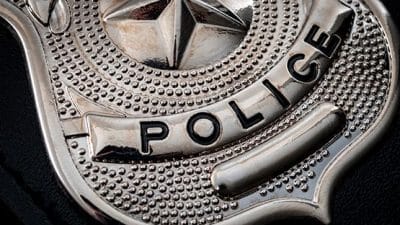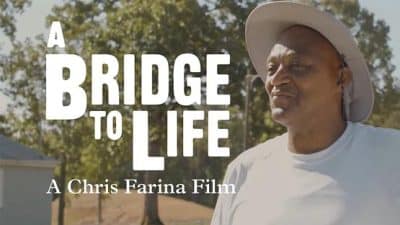
We all remember what happened after the tumultuous 2016-2017 season, which got off the rails early with the loss of five-star transfer Austin Nichols after the 6’9” center played just one game in a Cavalier uniform.
That team had a pair of freshman guards, kids named Kyle Guy and Ty Jerome, with senior London Perrantes, and a lot of defense: Devon Hall, Isaiah Wilkins, Jack Salt, Mamadi Diakite.
Marial Shayok would go on to eventually rank second in a major conference in scoring, but it wasn’t the ACC.
After the 23-11 finish, Shayok headed out, to Iowa State, joining Darius Thompson (Western Kentucky) and Jarred Reuter (George Mason) in a stunning week of guys getting out of Dodge that had the Wahoo faithful wonder what was going on.
All of this was a year after a more peaceful transfer of power. The 2015-2016 Elite Eight team was senior-laden: Malcolm Brogdon, Anthony Gill, Mike Tobey, Evan Nolte, two starters, two key contributors off the bench.
The plan heading into the following fall was to use Nichols as the next-level Gill in the post, get production on the perimeter from Shayok and Thompson, work in Guy and Jerome, but slowly.
It wasn’t a bad plan. Nichols, the five-star recruit, had averaged 13.3 points and 6.1 rebounds per game at Memphis as a sophomore, comparing favorably to Gill (13.8 points, 6.1 rebounds as a senior).
Virginia had him, again, for one game, before Bennett dismissed him, for a still-undisclosed violation of team rules.
Shayok would go on to score 18.7 points a game as a senior at Iowa State, so, he can put the ball in the hole.
Just, it would turn out, not at Virginia: he averaged 8.9 points a game as a junior on that 2016-2017 team, more likely to go scoreless (as he did three times that season) as score 20 (once).
That team, still, remember, figured out a way to win 23 games, 11 in the ACC, one in the NCAA Tournament, and somehow finished 50th nationally in offensive efficiency, according to KenPom.com, which, 50th, it isn’t second, like this year’s team finished, but it’s still top 15 percent of all the teams playing college basketball.
Then, to that 2017-2018 team, which not only didn’t have Nichols or Shayok, or Thompson or Reuter, but only really added a grad transfer, Nigel Johnson, who would go on to score a modest 4.9 points a game in his one season at Virginia, and a kid who had redshirted his first year at UVA, De’Andre Hunter, who wouldn’t start getting significant playing time until the ACC season started.
To wit on that: Hunter logged just six minutes in the Cavaliers’ ACC opener against Boston College, and didn’t score.
That team had been picked sixth in the ACC in the preseason media vote, and wasn’t ranked in the preseason AP Top 25.
It went on to a 31-3 finish, a 17-1 ACC regular season, the ACC Tournament championship, and then that historic collapse in the first-round NCAA Tournament loss to UMBC that you might have heard of.
Heading into 2018-2019, there was that hanging over the program’s head, plus the losses of two starters, Hall and Wilkins, with really nobody new being added to the roster, aside from a 5’9” point guard, Kihei Clark, who had previously committed to UC-Davis that nobody outside the program expected to do more than dress out and get a couple of minutes at the end of early-season blowouts.
A late boost, word finally coming down in October, also added a transfer from Alabama, Braxton Key, to the rotation.
Key compared favorably to Wilkins (Key in 2018-2019: 5.7 points, 5.3 rebounds, 19.8 minutes; Wilkins in 2017-2018: 6.0 points, 6.2 rebounds, 27.5 minutes).
Both are back in 2019-2020, but otherwise, it’s feeling like the spring of 2016 in the offices in the John Paul Jones Arena.
The losses of Guy, Jerome, Hunter, Salt, and possibly Diakite are, yes, huge.
Those five averaged 55.3 points per game, 78.6 percent of the scoring output, and averaged 140.2 minutes per game, accounting for 68.8 percent of the minutes.
The 2015-2016 seniors accounted for 61.1 percent of the points and just 43.3 percent of the minutes on that team. The guys who left after 2016-2017, including Perrantes, Shayok, Thompson and Reuters, contributed 48.5 percent of the scoring and 42.1 percent of the minutes.
The numbers heading into 2019-2020 are a little more in line with the situation heading into 2016-2017 if Diakite returns, as some assume (the guys leaving would then have accounted for 68.0 percent of the points and 59.2 percent of the minutes).
A couple of advantages this time around:
- You have three, maybe four, rotation guys who just cut down nets at the Final Four, in Clark, Key, Diakite and Jay Huff.
- You also have another four-star seven-footer, Francisco Caffaro, who redshirted this year.
As was the case heading into the fall of 2016, you have some heralded recruits getting ready to come on Grounds. It was Guy, Jerome, Hunter and Huff three years back; this time, it’s four-stars Casey Morsell and Kadin Shedrick, and three-star Justin McKoy.
And, the roster isn’t yet complete, at least you can’t assume it is. Bennett and staff are likely in the market for April signees, and you have to think there is going to be some effort to land a grad transfer, maybe two, with all the scholarships still open.
It will be a rebuilding year, yes, but think, again, 2016-2017. That team won 23 games with a mix of veteran guys and young guys, and the young guys ended up forming the nucleus of a national championship team.
It’s not hard to see the seeds of a winner a year or two down the road in the roster for 2019-2020.
Patience. And, in the meantime, I still haven’t sweated in my national championship hat.
Column by Chris Graham










